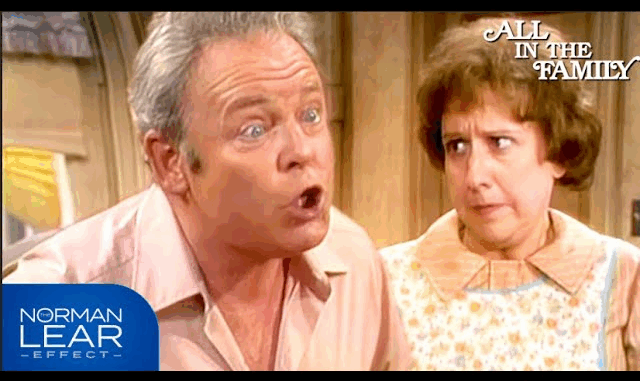
When All in the Family first aired on January 12, 1971, many viewers didn’t know what hit them. Within minutes, Archie Bunker had uttered racial slurs, criticized feminists, and mocked almost every political position that wasn’t his own. For some, it was offensive. For others, it was hilarious. But for everyone, it was unforgettable.
That, perhaps, was the genius of All in the Family: it made people talk.
The show didn’t tiptoe around controversy — it charged directly into it. Topics that were once considered “too hot for TV” became the centerpiece of prime-time conversations. Abortion, the Vietnam War, menopause, gun control, homosexuality — no subject was off-limits. And while some applauded its bravery, others decried it as inappropriate or dangerous.
At the heart of the backlash was Archie Bunker himself. Played masterfully by Carroll O’Connor, Archie was a deeply flawed man — prejudiced, stubborn, and loud. Critics worried that audiences might take his views seriously, rather than see them as satire. In fact, some did. Letters poured into CBS from viewers who saw Archie as a hero, not the cautionary figure Lear had intended. Others, particularly from marginalized communities, felt the show didn’t go far enough in condemning his bigotry.
But Norman Lear, the show’s creator, stood firm. He believed that real change came not from avoiding conflict, but from confronting it head-on. The show’s intention was never to endorse Archie’s views — it was to expose them, challenge them, and ultimately allow viewers to examine their own.
In retrospect, the controversy was a feature, not a flaw. All in the Family didn’t offer easy resolutions because life didn’t offer them either. By bringing uncomfortable truths to the surface, it started conversations that had long been buried under politeness and silence.
Remarkably, the debates the show ignited in the 1970s still resonate today. In an age of social media outrage and political polarization, All in the Family reminds us of the value of uncomfortable dialogue — and the power of art to stir both discomfort and growth.
It wasn’t always easy to watch. But it was always necessary.
